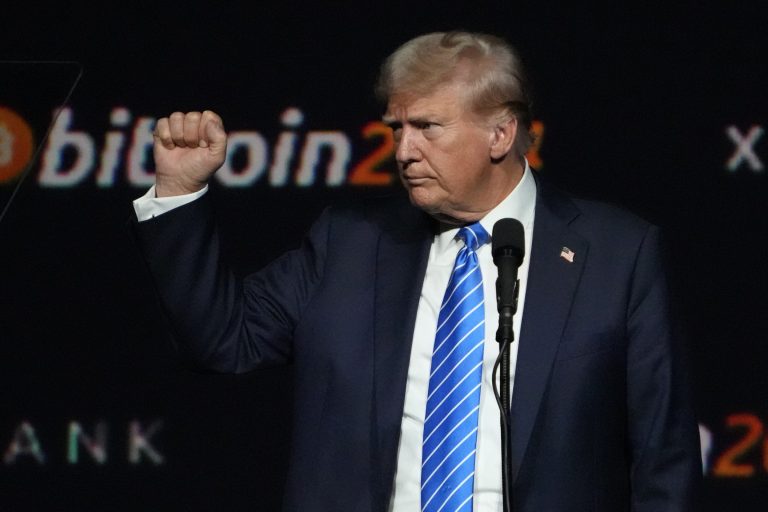Pressure Mounts: Taiwan's Soaring Dollar Demands Economic Reform

Table of Contents
The Impact of Taiwan's Strong Dollar on Exports
A strong Taiwan dollar significantly impacts export-oriented industries, the backbone of Taiwan's economy. When the Taiwan dollar appreciates, Taiwanese goods become more expensive in international markets, reducing their competitiveness against rivals from countries with weaker currencies. This directly affects export volume and profit margins. The electronics manufacturing sector, a major contributor to Taiwan's GDP, and the textile industry are prime examples of sectors acutely vulnerable to this phenomenon.
- Decreased export volume: Companies are finding it harder to secure contracts as their products become less price-competitive.
- Reduced profit margins: Businesses are forced to absorb increased production costs or risk losing market share by lowering prices, squeezing profitability.
- Potential job losses in export-oriented sectors: Reduced orders and shrinking profit margins lead to layoffs and business closures, impacting employment across the board.
- Increased vulnerability to foreign competition: Competitors from countries with weaker currencies gain a significant price advantage, capturing market share from Taiwanese businesses.
These negative consequences highlight the urgent need to address the challenges posed by Taiwan's soaring dollar and the declining competitiveness of Taiwan exports on the global market. The resulting trade deficit further emphasizes the gravity of the situation.
The Need for Diversification Beyond Export-Oriented Industries
Taiwan's heavy reliance on export-driven growth has proven risky in the face of a strong Taiwan dollar. To mitigate future economic shocks, diversifying into sectors less susceptible to currency fluctuations is crucial. This requires a strategic shift towards domestic consumption-driven industries and the development of high-value-added services.
- Investment in domestic consumption-driven industries: Boosting internal demand through increased consumer spending can lessen the dependence on exports and create a more resilient economy.
- Development of high-value-added services: Investing in sectors like finance, technology, and healthcare offers higher profit margins and less vulnerability to currency fluctuations.
- Encouraging entrepreneurship and innovation in new sectors: Fostering a culture of innovation and supporting startups in emerging sectors helps create new growth engines.
- Promoting green technologies and sustainable development: Investment in environmentally friendly industries creates long-term growth opportunities and positions Taiwan as a leader in sustainable development.
Economic diversification is not merely a response to the current challenges but a strategic imperative for long-term economic health and stability for Taiwan.
Structural Reforms to Enhance Taiwan's Economic Competitiveness
Beyond diversification, structural reforms are essential to bolster Taiwan's overall competitiveness. These include labor market reforms to boost productivity and wages, and regulatory reforms to attract foreign investment and encourage innovation.
- Easing restrictions on foreign talent: Attracting highly skilled workers from abroad can fill skill gaps and boost innovation.
- Improving infrastructure and digital connectivity: Upgrading infrastructure, particularly digital infrastructure, is crucial for attracting foreign investment and supporting businesses.
- Streamlining bureaucratic processes: Reducing red tape and simplifying regulations can make Taiwan a more attractive place to do business.
- Investing in education and skill development: A highly skilled workforce is essential for competing in a globalized economy. Improving the education system and providing opportunities for continuous skill development is vital for the long-term prosperity of Taiwan.
These structural reforms will create a more attractive business environment and foster long-term economic growth, making Taiwan better equipped to handle future currency fluctuations.
Government Policy Responses to Address the Soaring Dollar
The Taiwanese government must take proactive steps to manage the impact of the strong Taiwan dollar. While currency intervention can provide short-term relief, long-term sustainable solutions are paramount. Analyzing current government strategies, and exploring potential policy interventions like fiscal stimulus alongside monetary policy, are crucial.
- Evaluation of current government strategies: A thorough assessment of existing policies is needed to identify areas for improvement and adjust approaches as necessary.
- Discussion of potential policy options: Exploring various policy interventions, including fiscal stimulus and targeted support for specific industries, is necessary to find the most effective solutions.
- Analysis of the potential benefits and drawbacks of different approaches: A careful cost-benefit analysis of different policy options is crucial to ensure that interventions are both effective and sustainable.
- Emphasis on long-term sustainable solutions: Short-term fixes should be avoided in favor of policies that promote sustainable economic growth and resilience.
A comprehensive and well-coordinated government response is essential to address Taiwan's soaring dollar and mitigate its negative consequences.
Conclusion: Navigating the Challenges of Taiwan's Soaring Dollar
Taiwan's soaring dollar presents significant challenges, demanding immediate and decisive action. The need for economic diversification, crucial structural reforms, and effective government policies cannot be overstated. Failure to address these issues could lead to long-term economic stagnation. Understanding the complexities surrounding Taiwan's soaring dollar is crucial for navigating its economic future. Stay informed, participate in the conversation about the necessary reforms, and advocate for policies that will ensure Taiwan’s continued economic prosperity. The continued strength of the Taiwan dollar necessitates immediate and decisive action. Further research into the implications of currency appreciation and the effectiveness of various policy interventions is recommended.

Featured Posts
-
 Will Trumps Policies Push Bitcoin Btc Above 100 000 A Price Prediction Analysis
May 08, 2025
Will Trumps Policies Push Bitcoin Btc Above 100 000 A Price Prediction Analysis
May 08, 2025 -
 Honest Take Jayson Tatum Comments On Steph Currys All Star Performance
May 08, 2025
Honest Take Jayson Tatum Comments On Steph Currys All Star Performance
May 08, 2025 -
 Results Of The Daily Lotto Draw Tuesday April 15 2025
May 08, 2025
Results Of The Daily Lotto Draw Tuesday April 15 2025
May 08, 2025 -
 March 7th Nba Thunder Vs Trail Blazers How To Watch Live
May 08, 2025
March 7th Nba Thunder Vs Trail Blazers How To Watch Live
May 08, 2025 -
 Universal Credit How To Claim Historical Payments From The Dwp
May 08, 2025
Universal Credit How To Claim Historical Payments From The Dwp
May 08, 2025
